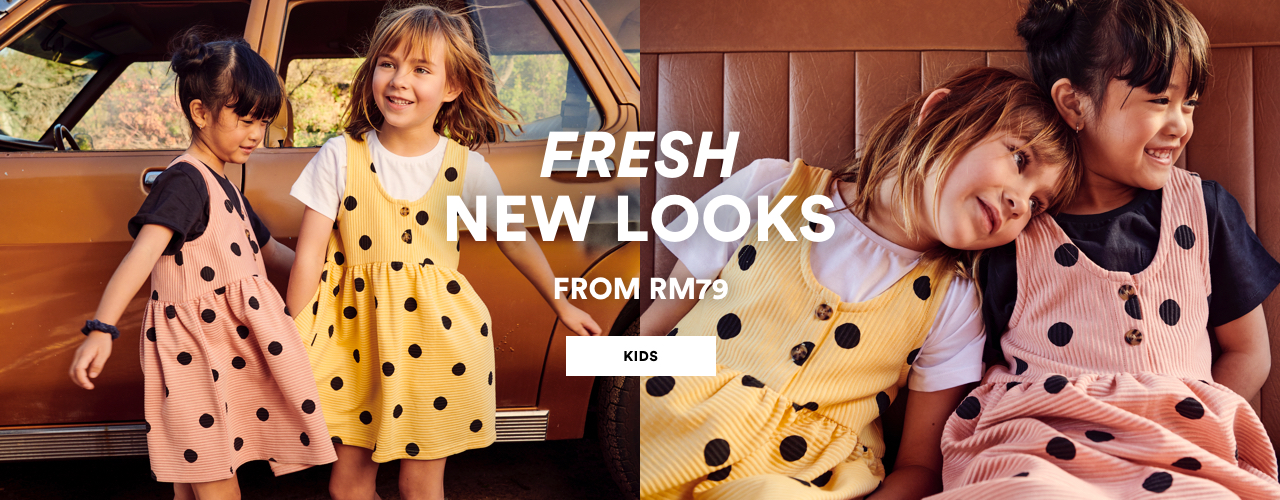

"It was another cracking month, the fifth in a row where we've beaten the market," says Johnson, who worked for Country Road and Sussan Group before joining the COG team in 2004.Ĭomparable store sales across the group rose 9.2 per cent in February, led by 22 per cent growth at Cotton On Kids, 14.8 per cent at Supre, which was acquired in 2013, 12.5 per cent at stationery and homewares chain Typo and 8.6 per cent at the original Cotton On brand.
#Typo cotton on malaysia update
On a chilly Tuesday last week, the 1000-odd staff at Cotton On's headquarters in an industrial estate in Geelong's north gathered for the group's monthly BBQ for an update on February sales and to learn more about plans for the coming year.

"We don't need to do it to continue to deliver on our aspirations for the business." "It's just not something we spend time thinking about," says Michael Hardwick, 46, who joined Cotton On as chief financial officer in 2009 after a long career with PwC and working in venture capital in the US. "They wouldn't even get to me today because it's not even on the agenda," Austin says. In exclusive interviews with AFR Weekend, Austin and the Hardwicks ruled out an initial public offer and say they have no plans to raise external capital or sell out, despite keen interest in the past from private equity investors and domestic competitors. "Now we don't need to be that defensive and it's not really a survival game anymore – we're thriving and it's good for people to know what it is that everyone here does." No plans to sell "We chose not to tell the story as a defensive mechanism while we were trying to grow," says co-owner Ashley Hardwick, 40, who was still at university when he started helping his cousin with the bookkeeping in 1992. "They don't and never have disclosed profit and you can't see at all through their accounts," lamented one competitor.īut Austin, his cousins Ashley and Michael Hardwick and their trusted lieutenant, chief executive Peter Johnson, have finally decided to lift the lid, disclosing for the first time the size of the company, its growth strategy and its ambition to become the world's dominant value fashion retailer.
#Typo cotton on malaysia series
Rivals curse the fact that COG keeps its accounts away from prying eyes by using a series of discretionary trusts for each of its eight brands. It's one of only a handful of domestic retailers that have successfully ventured overseas.Īustin has deliberately avoided publicity in the past, and the scale of the group's operations is known to few outsiders, even in the close-knit Geelong community where Cotton On's global operations are still based. It's a relatively young and determined company who have no set boundaries and who know their customer intimately."Ĭotton On Group is now bigger than Solomon Lew's Premier Investments, which owns Just Jeans, Dotti, Portmans and Jay Jays, the Country Road / Witchery / Mimco group and even surf and skate wear retailer Billabong International. "It has a singular focus on every day, edited basics that are fashion focused at an exceptional price and quality. "Cotton On is a true Australian new generation success story," retail expert and former David Jones chief executive Paul Zahra says. With almost 760 stores in Australia alone, the homegrown casual fashion factory arguably has more influence on what we and our kids wear on the weekend that any other fashion chain. Sales have risen more than 20 per cent a year for at least five years and are forecast to reach $1.51 billion this year, seemingly unaffected by the invasion of international fast-fashion chains such as Sweden's H&M, Inditex's Zara, Arcadia Group's TopShop and Japan's Uniqlo. Now 44, Austin is still selling denim jackets – as well as T-shirts, jeans, checked shirts, dresses, sweaters, bras, undies and homewares – but his Cotton On Group retail empire has grown from just two stores in 1991 to more than 1300 stores across eight brands in 19 countries including the US and South Africa.

"The next week I sold all 20 and made $200 – I thought that was pretty addictive," Austin says.Ĭotton On chief executive Peter Johnson and chief financial officer Michael Hardwick have disclosed for the first time the size of the company, its growth strategy and its ambition to become the world's dominant value fashion retailer. Undeterred, he went back to his supplier, who just happened to be his father, the late clothing wholesaler Grant Austin, and negotiated a better deal. In the first week he sold just one jacket for $30, barely enough to pay for lunch and petrol. Nigel Austin was studying business at university when, in need of cash, he started selling acid-wash denim jackets from the boot of his car at the markets in Geelong almost 24 years ago.


 0 kommentar(er)
0 kommentar(er)
